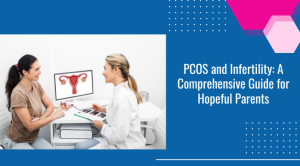In-Vitro fertilization or IVF is one of the latest- assistive reproductive techniques that help couples produce their babies. As per procedure, the eggs and sperms are retrieved and fertilized outside the body in the cultured atmosphere in vitro, and once a viable embryo is produced, it is transplanted in the womb.
Compared to the last two decades, IVF technology has considerably improved with greater chances of conception and birth rates. But, still, the failure chances are also high. Although our experts try to minimize risks and manage IVF failure symptoms, they counsel the couples to expect the best but be prepared for the worst.
The IVF is complex series of procedures, and each step involves risks of failure. Here are a few identified reason for IVF failure.
Reason for IVF failure
Egg abnormalities:
The human egg is a complex structure and extremely fragile. As a result, it has a fair chance of becoming non-viable. In addition, according to high school biology lessons, when egg cells divide, chromosomes line up in the middle of the cell and duplicate. Therefore, egg abnormalities may arise during the duplication of egg cells.
Sperm Abnormalities:
Sperms play up to fifty percent role in fertilization. Ideally, motile and healthy sperm cells are required for fertilization. For accuracy, in the IVF, ICSI process, the sperm cells are directly injected with very thin injection into the viable egg cells. Hence if the process fails, sperm abnormality may be involved in giving no results.
Ovarian response:
Doctors administer the dosages of a follicle-stimulating hormone which is a fertility hormone. FSH aims to increase eggs production. However, women of higher age generally find their ovaries nonresponsive, resulting in IVF failure.
Blastocyte stage:
From fertilization until obtaining a mature embryo, the embryo undergoes development in a lab-induced atmosphere. This stage of development is called the blastocyte stage, and there are quite chances of stage failure where the blastocyte doesn’t mature.
Embryo selection methods:
Typically, embryos are screened before transplantation in the womb. Essentially, an embryo is selected for transfer based on three methods: cell stage, embryo grade, and the rate of cell division. Our experts screen the matured embryos for any abnormality, and once found viable after screening; it is implanted in the uterus. In the embryo selection process, there are quite chances that all mature samples are detected with some abnormality, making the process futile.
Female Age:
Female age plays an important role in the conception, and quality, and quantity of eggs production. Age can affect the clinical process also. Studies have stated that women above 35 have only 47% chance of having a successful IVF.
Lifestyle:
There are several lifestyle choices, such as smoking and frequent drinking, that may affect the fertility of both genders. Doctors advise quitting smoking a few months before seeking IVF treatment and maintaining a healthy diet.
How to cope up with failed IVF
Different psychologists have a different answer for the question, how to cope up with failed IVF? Although psychologically and physically, it is exhaustive and screwing, several tips can help the couple better, especially the woman.
Meditate:
Psychologists highly recommend meditation to cope up with failed IVF.
- It is advised to sit in a comfortable environment, a place to rest your back.
- Bring your awareness to the grief and take long breaths to make yourself accept that grief.
- Please make yourself aware that it is okay to feel emotional and natural.
Positive mindset:
It is important to attain a positive mindset before your next attempt. Several mind detox techniques and meditation can help achieve a refreshing and positive mindset.
Lifestyle changes:
- Bring positive changes in your body, make it healthier and stronger.
- Maintain a good diet and do regular exercises to maintain your BMI.
- Go to a yoga center and learn about new things that can help increase your chances of conceiving.
- Use all the factors in life to bring a positive change in your life. It is important to have someone you can talk to about your emotions and feelings. Our experts closely monitor each step and diligently schedule every session to ensure positive results. In Endoworld hospital, we make additional efforts to ensure patients’ mental and physical well-being. So, visit us to nurture your hope.





